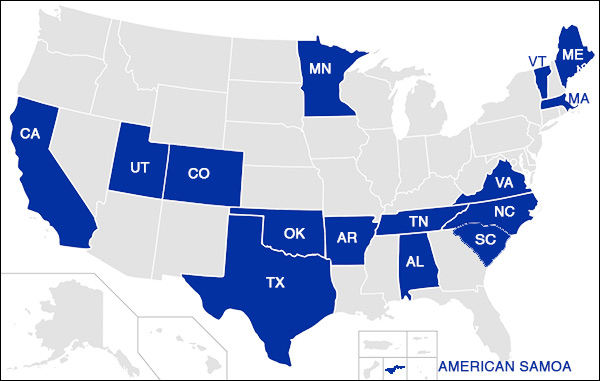By Jim Ellis
April 1, 2020 — The Senate Majority PAC, one of the chief advocacy entities for Democratic candidates, has reserved media time totaling $69.2 million from August through the election, as reported on the Daily Kos Elections website. The expenditures provide us some clues into how the Democratic establishment and their progressive left allies view their strategic attack points in relation to the national political landscape.
 The early media time reservations are invested in five states: Arizona, Colorado, Iowa, Maine, and North Carolina. This is certainly not the limit of the SMP planned expenditures, nor is the organization likely committed to fulfilling the entirety of this time buy without having negotiated an escape clause. All depends upon their agreements with the individual television outlets and does not include any future expenditure the group may make for radio and digital advertising.
The early media time reservations are invested in five states: Arizona, Colorado, Iowa, Maine, and North Carolina. This is certainly not the limit of the SMP planned expenditures, nor is the organization likely committed to fulfilling the entirety of this time buy without having negotiated an escape clause. All depends upon their agreements with the individual television outlets and does not include any future expenditure the group may make for radio and digital advertising.
Setting the stage, the five states are all clearly top-tier Republican-held targets of which the Democrats would have to convert nearly all in order to wrest Senate control away from the current majority. That number grows if they fail to defend their own vulnerable seats in either Alabama or Michigan, or both.
The largest time reservation is in North Carolina, where Democrats hope newly nominated Cal Cunningham, a former state senator and 2010 US Senate candidate (lost Democratic nomination to then-secretary of state Elaine Marshall who would lose the general election to GOP Sen. Richard Burr), can unseat first-term incumbent Thom Tillis (R) in a state that has defeated more senators than any other in the modern political era. Of the $69.2 million in national reservations the group made, $25.6 million is dedicated to North Carolina media markets.
Arizona gets the second largest share with $15.7 million dedicated toward helping retired astronaut Mark Kelly, already the consensus Democratic candidate, challenge appointed Sen. Martha McSally (R). Iowa, where Democrats will nominate a candidate on June 2 to challenge first-term Sen. Joni Ernst (R), will see $13.1 million of the SMP media buy. Maine gets $9.6 million to oppose Sen. Susan Collins (R), and Colorado $5.2 million largely for negative ads against first-term Sen. Cory Gardner (R).

 March 12, 2020 — We have now seen US Senate primaries occur in five states with another six completing the filing process. In 15 instances, we already have either the general election pairings officially or unofficially set, though the Massachusetts Democratic primary on Sept. 1 is effectively the only determinative election.
March 12, 2020 — We have now seen US Senate primaries occur in five states with another six completing the filing process. In 15 instances, we already have either the general election pairings officially or unofficially set, though the Massachusetts Democratic primary on Sept. 1 is effectively the only determinative election.


